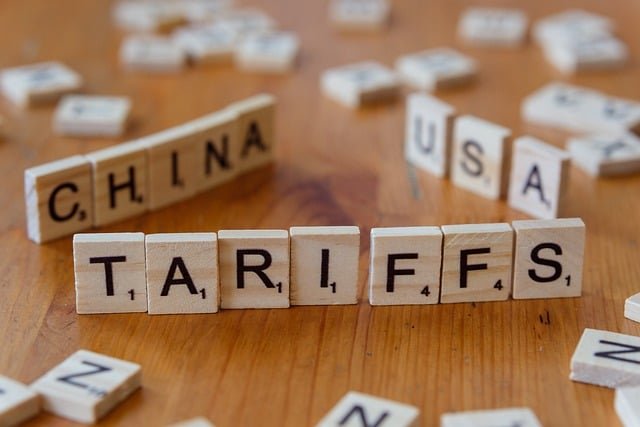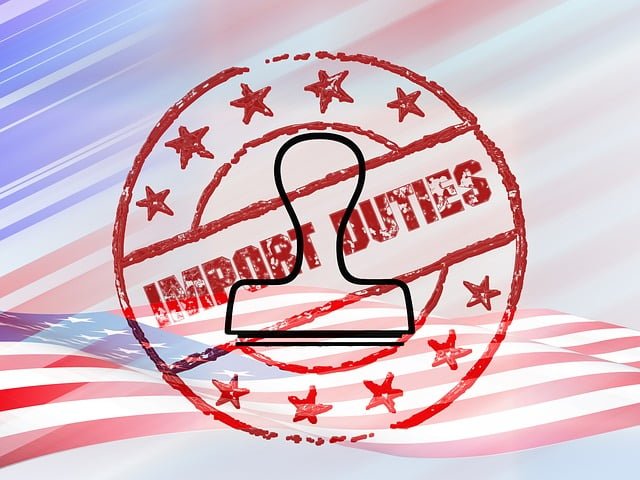Tariffs are more than a trade term—they’re shaping how much you’ll spend on your next appliance.
Let’s be honest—most of us don’t think about tariffs until they start messing with our wallets. And unless you’re deep into economics or international trade, the topic can feel like a blur of taxes, trade wars, and political debates. But when those abstract policies start affecting the price of everyday things—like your fridge, your washer, or even your coffeemaker—it suddenly becomes very real.
With new tariffs rolling out under President Trump’s administration, a lot of folks are asking: What does this actually mean for me? Will prices spike? Should I buy now or wait it out? And why does it seem like even the smallest appliance is getting caught up in all of this?
Let’s break it all down—plain and simple—so you know what’s happening, who it’s going to hit, and how it might change your next appliance purchase.
What Are Tariffs?
Although many of us have our opinions on whether tariffs are good or bad, let’s take a look at what they are.
Tariffs are taxes placed by the government on goods brought in from other countries. For example, if a company wants to buy phones from South Korea to sell here in the US. There’s a tax for bringing in goods from outside the country, rather than buying from local suppliers.
That’s the basics.
When it comes to the tariffs that President Trump is enacting, it hits home appliances on multiple levels.
First we have the varying charges on goods imported from different countries. These are based on how that country has interacted with the US, and the tariffs that they charge us. There’s a complicated formula that was used, but that’s not relevant.
Second, you have across the board tariffs that are being charged on all imported home appliances.
Finally, you have tariffs that are being applied to steel and aluminum, which will also affect the price of goods made from those materials.
Who Will Be Affected By Tariffs?
In theory, tariffs are meant to increase our nation’s income, by taxing incoming goods.They are meant to help our economy by making imported products more expensive. This encourages businesses to buy and sell goods made in the United States instead.
However, what happens when companies are charged through the nose to bring in goods from other countries? We, the consumers, get charged through the nose. Prices go up because materials cost more, because of the tariffs themselves, and because supply is shrinking.
So, in theory the companies who are importing goods will be paying. In practice? It’ll be us.
How Will Tariffs Affect Buying New Appliances—And Why?
Now for the meat of things. How are the tariffs going to affect buying new appliances?
Some companies preempted the tariffs going into effect by raising prices ahead of time. Thermador, LG, GE, and Sub-Zero all did this. Thermador and LG both raised their Prices in January, GE raised theirs in February and Sub-Zero raised theirs in March. While none of these hikes were more than 25% at the time, it’s unclear how much they’ll go up in response to the April 3rd tariffs.
Here’s a breakdown of what we’re likely to see for all of the different appliances.
Refrigerators and Freezers
Many major brands are manufactured in Mexico, so they’ll be hit with the tariffs for importing from there.
Washing Machines & Dryers
Samsung and Whirlpool both have assembly plants in Mexico, again, import tariffs from Mexico.
Microwaves & Ovens
Both have a large number of pieces (if not their entirety) made of steel and aluminum, even as many are assembled in the US. This means that they get hit with the charge for steel and aluminum imports.
Gas Grills
Almost half of the choices you see in the store are all made in China, so they’ll get hit with the highest tariff currently on the books.
Coffeemakers
Yup. Even our coffeemakers are going to get hit since most of them from KitchenAid to Thermador are imported.
As tariffs go into effect, companies will start to bring in fewer units to limit how much they’re paying at one time. If they can’t guarantee the capability of selling what they have, they aren’t going to bring it in. This will mean we’ll start to see availability issues as prices are rising, or you’ll be charged extra to ensure that you get what you wanted.
In fact, kitchen appliances are experiencing a double whammy: not only are many finished products imported, but even U.S.-made models rely on foreign steel and components now subject to tariffs. That means manufacturers face increased costs on multiple fronts — and consumers foot the bill.
An important thing to consider is that President Trump has already given a 90 day pause on certain tariffs, as well as being ‘open to negotiation’ from certain countries. So, trying to predict how and when prices will rise or fall is not worth the time. The situation is in flux from one day to the next, and we don’t know how it will shake out or how long it will take for things to settle. For that one, you can look back at how tariffs affect washing machines in President Trump’s first term.
And whether shoppers feel panicked or patient often has little to do with pricing spreadsheets and everything to do with political outlook. Those hoping tariffs will pay off long-term are often more willing to ride out the discomfort — while others, feeling blindsided, are scrambling to buy before things get worse.
While tariffs may change the price tag on new appliances, one thing that won’t change is the value of a well-timed repair. If your current appliances are still hanging in there but acting up, our team at Appliance Rescue Service can help you extend their lifespan and avoid steep replacement costs. Give us a call—we're here to keep your home running smoothly, no matter what the market looks like.
Website
Call: (214) 599-0055



